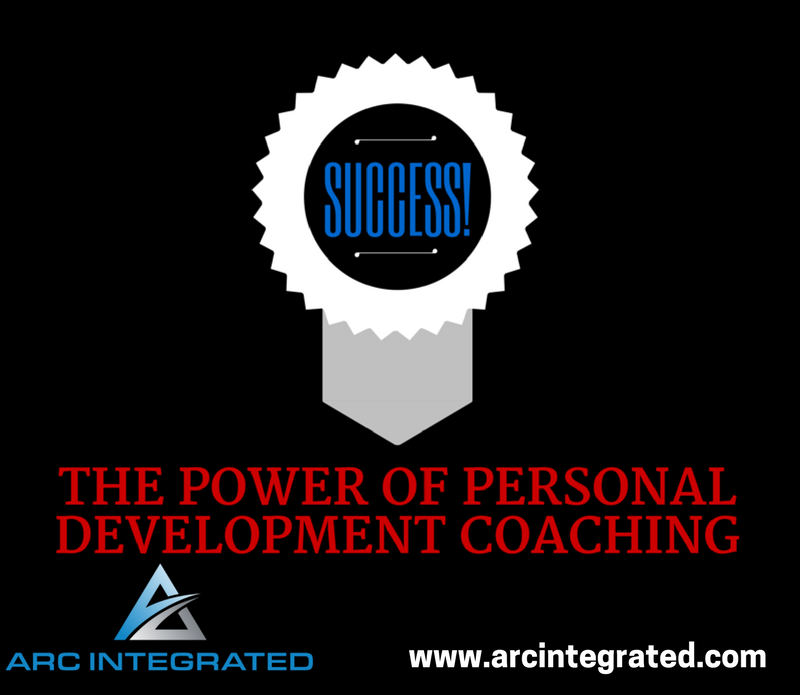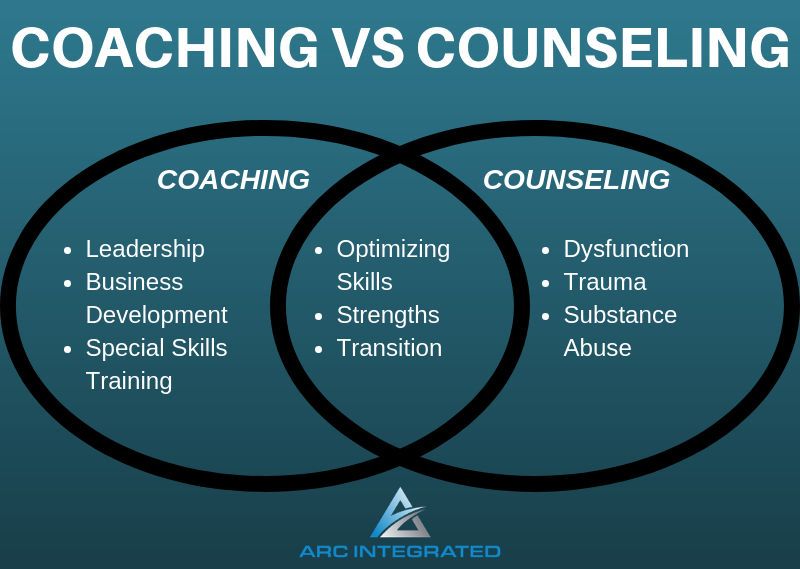
The Power of Personal Development Coaching – Arc Integrated
I was inspired by a good friend who asked me once – “Why would someone hire a coach?” My thinking is that personal development coaching is relevant to any type of coaching. It’s relevant because exploring our beliefs, behaviors, aspirations and expectations are reflected in our career, relationships or any change we are seeking. These are all elements that contribute to the power of personal development coaching.
While there certainly could be many answers to my friend’s question, it had me curious about some statistics. I wanted to find out specifically who and why people are generally using coaches. It seems that through my digging, I’ve uncovered some truth to my original thought. Before we dive into what I found, let’s look over what it means to be a coach.
Coaches can come with a variety of titles but most commonly seen are – Executive Coaches, Life/Personal Coaches, Leadership Coaches or Career Coaches. Coaching has some similarities to therapy but is definitely different in the sense that there is not an emphasis on processing a particular pain or dysfunction and more emphasis on goal setting and personal optimization. For more information see this article on Counseling vs. Coaching.
Coaches typically help individuals or organizations identify goals, set commitments and build on strengths to make individual or group changes that will influence improvement. Coaching is definitely on the rise, as now more than 30 American universities have coaching programs.
The International Coaching Federation (ICF), the leading professional organization for coaches has about 25,000 in its membership. Also according to the International Coaching Federation, the number of coaches in the nation has tripled in the last 10 years. As stigma for coaching continues to go down and the coaching profession evolves, this numbered is expected to continue to grow. Overall the two most reported conditions worked on through coaching are work-life balance and personal growth. In another study by the ICF, coaching shows to improve many life domains from productivity to self-confidence.
Coaching is often found with organizations or with executives. According to a study The Miles Group and Stanford University – nearly 1/3 of all executives receive coaching, while 100% report to want it. Also in this study, it was found that 43% of executives surveyed report that conflict management was a top priority when it comes to coaching. It was found that leadership and communication skills also rank high in areas that are being coached on.
Interestingly though it may be some other skills that needed to be focused on when it comes to leadership and executive coaching. Skills like compassion, empathy and self-awareness are starting to gain momentum due to the coaching field having less stigma. In addition, according to research by Northwesterns School of Management, it is shown that as power increases, ability to understand how others feel and think, decreases. This is where coaching on self-awareness and empathy may play a crucial role. As someone’s responsibility and leadership increases so does the importance of their ability to connect with others, a crucial component of an effective leader.
According to a survey by the Harvard Business Review – while only 3% of coaches were hired to help address a personal issue, 76% report to have assisted executives with personal issues. This again points back to the fact that even in “executive coaching” scenarios, there is a key focus on personal development. This survey also found that the most success was found in individuals who were willing to address personal issues and had a desire to learn and grow.
So the question becomes – “is coaching worth it?” According to a study by Manchester Consulting Group who looked at Fortune 100 executives who had received coaching, there was an ROI six times the coaching program cost. Coaching resulted in improvements in relationships, teamwork and job satisfaction.
To me it depends on level of commitment and readiness for change. If someone is certain that they are ready to take a look inward to determine what is creating a barrier to success, then coaching could be a great avenue for this!
Best,
Michael
P.S. If you are curious to learn more about personal development, effective workplace culture, dynamic leadership and a wide variety of other topics, sign up today! www.arcintegrated.com/book. It’s totally free.
You’ll also receive Chapter One (for FREE) from the upcoming book – CHANGES. This book explores seven themes of sustainable change so that you can finally achieve the professional and personal goals you have been striving for but keep missing.

